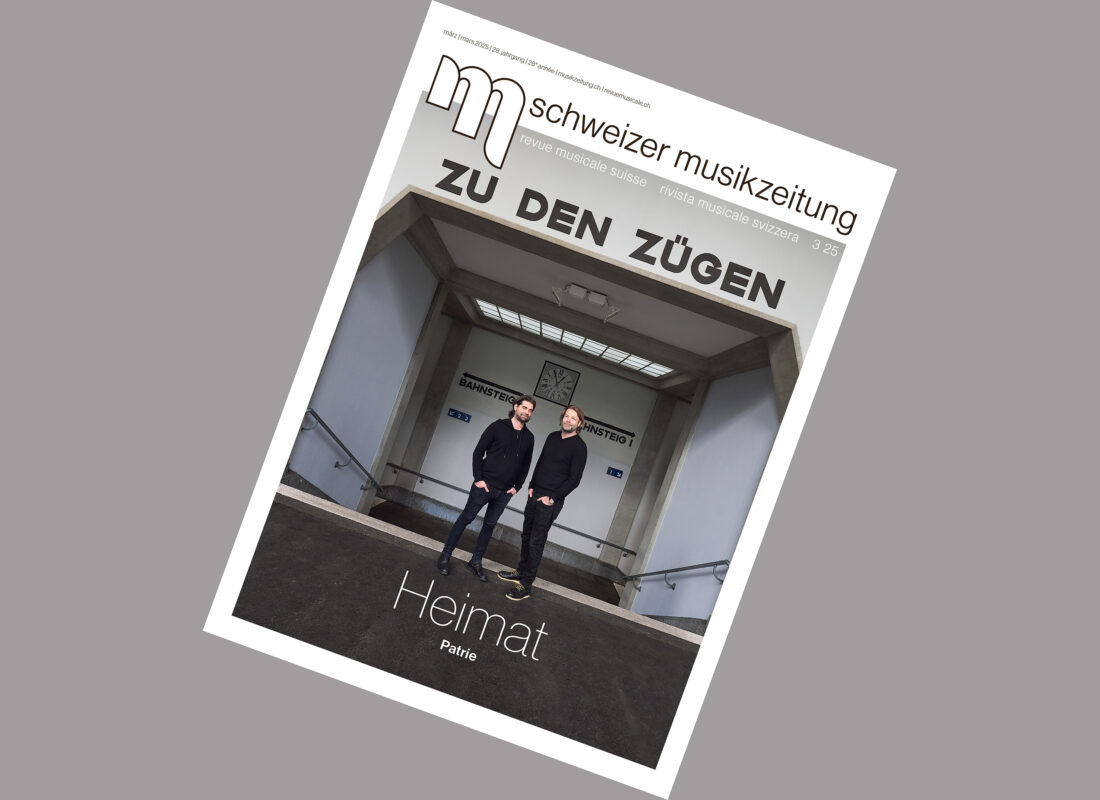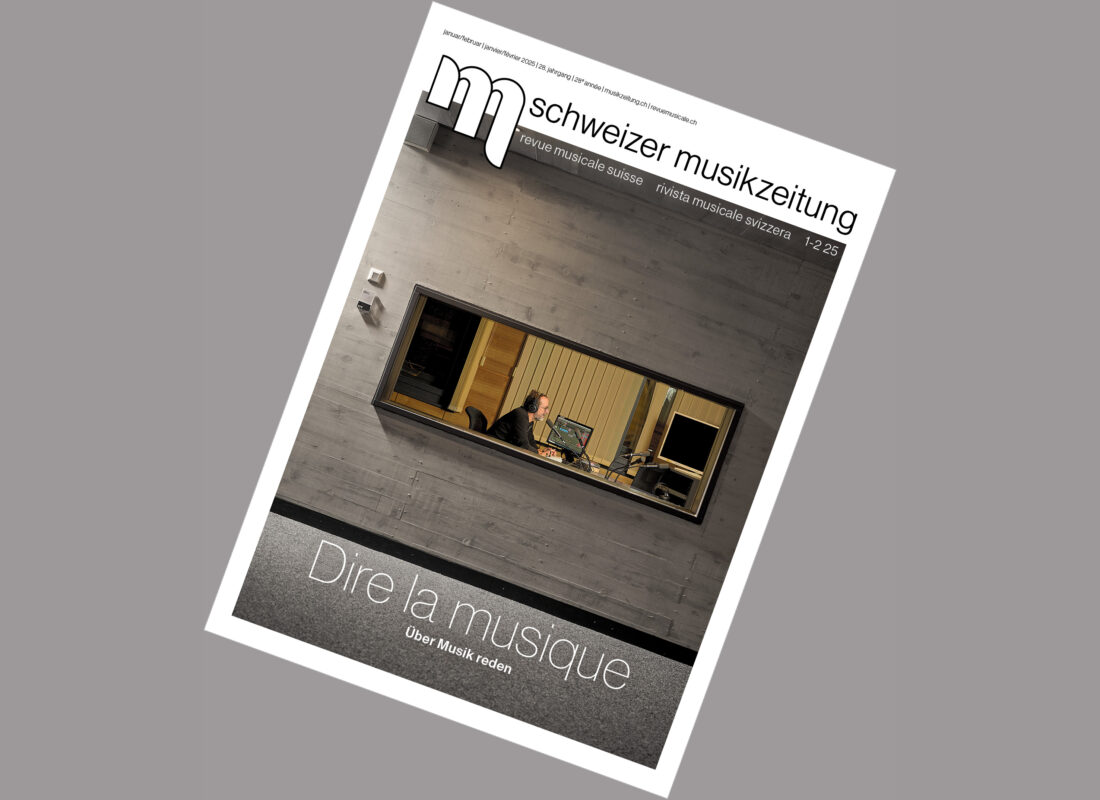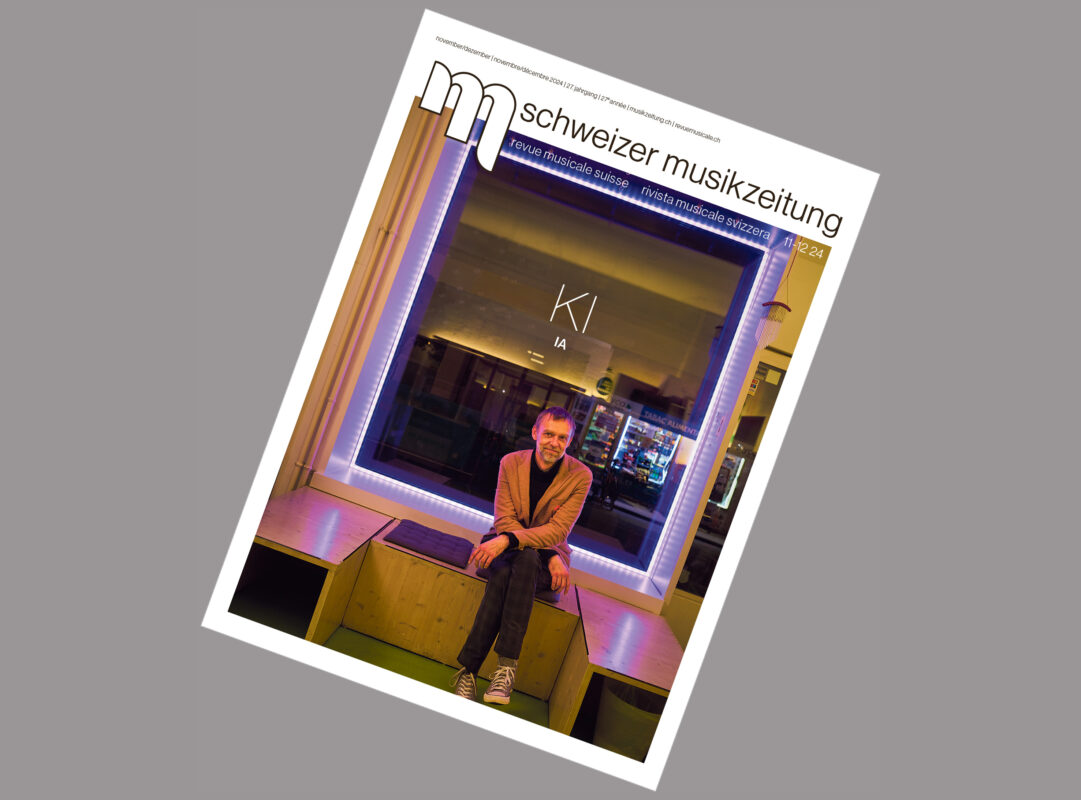Music for reading
There is music that exists only through its description within a literary work. The author can proceed in very different ways. A look at books by Hermann Burger, Marina Tsvetaeva and Thomas Mann.
There is music that exists only through its description within a literary work. The author can proceed in very different ways. A look at books by Hermann Burger, Marina Tsvetaeva and Thomas Mann.
Music doesn't always need a stage. Sometimes two book covers are enough for it to emerge. Of course, texts about music that try to make fleeting sounds comprehensible with words are common. But these descriptions usually "only" attempt to capture on paper what someone else has composed and played. What is rarer and more unusual, however, is when the music is created in the literary text in the first place, without annoying interpreters, so to speak, solely and directly in the reader's head. Musicalized language, such as Kurt Schwitters Ursonatathe prime example of sound poetry, is not meant by this. Rather, it is about music that remains silent, i.e. never really sounds - unless someone takes the trouble to convert this "literary music" into sound waves. It only sounds in the head, which does not necessarily mean that the music is less realistic, and certainly not that it has to be silent music. Hermann Burger's novel Schilten is the best example of this. Burger lets his anti-hero Armin Schildknecht play the keys. When the frustrated primary school teacher sits down at his harmonium in the mortar pit below the gym, he conjures up the apocalypse, makes the inventory shake or plunges his listeners into "silent derangement" or a "melancholy trance".
The literarily composed music as well as the entire "school report for the attention of the inspectors' conference" - as Burger subtitles his novel - is delivered to the reader's "inner" ears with powerful language. The main character, Schildknecht, delivers a first-person report on the state of the school in Schilten, which is both a monologuing psycho-self-analysis and a multifaceted testimony to a high-grade psychological pathology: "My voluntary detention is defused by the fact that I am locked up together with my beloved harmonium. The mixed school and cemetery care of Schilten gave me an instrument to say what I was suffering." In Burger's work, music provides access to the deepest abysses of the novel's character and thus - which is obvious - also to the mental abysses of the author himself: What the harmonium plays becomes a morbid soundtrack that accompanies Schildknecht's self-pitying excesses and gives expression to his struggle with the world around him: "For the duration of the interlude, however, they [the mourners] are exposed to my message. In the first fantasy, I work with the simple trick of panic in enclosed spaces. With octave leaps, I take hold of the proportions of the shabby-green unpleasantness, I also let the cool crypt of the mortar chamber arise at my back, so that the mourners move closer together and anxiously peer for the exits."
Although the music in Schilten although it takes up a lot of space, it is not the subject of the book. After all, the novel would be conceivable without "literary music". Music plays a completely different role in the small autobiographical booklet by Marina Tsvetaeva Mother and the music. Although included in the title, it almost never contains music. The author describes her problematic attitude towards it all the more poetically. Her mother wanted to raise her to be a musician, but daily piano practice was a constant source of frustration for the girl Marina: "When I wasn't playing, Assya was playing, when Assya wasn't playing, Valeria was practicing and - drowning us all out and covering us up - her mother, all day and almost all night!" The story revolves around music and the struggle with it, which is actually the struggle with the mother: "But - I loved her. I loved the music. Only I didn't love my music. The child knows no future, it lives in the now (which always means). Now there were only scales, canons and shabby 'little pieces' that offended me with their inconspicuousness."
Working and agonizing over music is also the subject of Thomas Mann's Doctor Faustus. However, the book delves much deeper into historical, musicological and theoretical considerations of music than the works of Burger and Tsvetaeva. Thomas Mann modeled his main character on the composer Arnold Schönberg and at the same time linked him to the archetypal Faust. The composer Adrian Leverkühn has made a pact with the devil and, thanks to him, can work like a man possessed with a guarantee of brilliant ideas. Thomas Mann has thus created a literary monument to twelve-tone music based on great connoisseurship. He thus builds a unique bridge between music and literature that is much stronger than Burger's and Tsvetaeva's, because it goes beyond literary and poetic playfulness. On the other hand, there are hardly any concrete descriptions of sounds. Instead, the book as a whole can be interpreted as a musical form, as suggested by Theodor W. Adorno. He noted about the Doctor Faustus"Fausti's journey to hell as a great ballet score." The ballet to read, it would also be worth a few thoughts.








